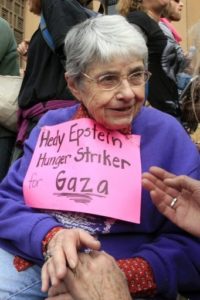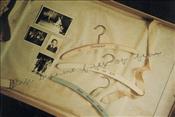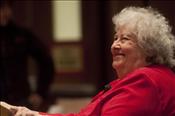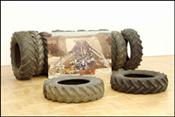A man who raised millions of pounds for charity after arriving in the UK as a four-year-old Jewish refugee from Nazi-occupied Europe is to become a knight. Erich Reich, 74, was among 10,000 “Kindertransport” children sent to the UK before the Second World War began.

BEIRUT — An 85-year-old Holocaust survivor entered the second day of her hunger strike on Tuesday, in protest over the Egyptian government’s refusal to allow an international Palestinian solidarity march to enter the Gaza Strip. “There comes a time in one’s life when one has to step up and risk one’s own body,” she said. “We’re in a desperate situation here, but not as desperate as the people in Gaza.”
AMY GOODMAN: Tell us a little more about yourself, Hedy. Talk about your early years in Germany and how you survived the Holocaust. HEDY EPSTEIN: I was born in Germany, and when Hitler came to power, I was eight years old. And my parents quickly realized that Germany was not a place to raise a family under the Nazi regime…In May 1939, I was fortunate to be able to leave Germany on a Kindertransport to England…My parents were not so fortunate. They perished in 1942 in Auschwitz.
I’m proof it’s never too late to go back to school, Wilde said. “But I don’t recommend people wait this long.” He was born Klaus Weiss and grew up in Berlin, where his father ran a family clothing store. He left Germany on a Kindertransport at the age of 15.
A WOMAN touched by the help and support she and her mother received from a charity is saying thanks by becoming a volunteer. Marilyn, a medical secretary, from Lisvane, said: “Sir Nicholas Winton saved my mother and hundreds of other children and she always wanted to do as much for others as it was a way she could help people to pay back for what people had done for her.”

Exhibit photographs by Rosie Potter and Patricia Ayre
The National Museum in Prague has an exhibition through December 2009, “Für das Kind: Winton Train: Inspiration by Goodness.” Along with paying tribute to this extraordinary man, the exhibition showcases the theme of parental love. As exhibition co-author Potter said at the opening of the show: “It is also dedicated to the parents of the children who had made a great sacrifice by allowing their children to leave, and who thus enabled them to live and become parents and grandparents themselves.”
Seventy years after British Prime Minister Neville Chamberlain told his nation they were at war with Germany, London’s Imperial War Museum has an exhibition exploring the outbreak of war in 1939 and the early years.”Outbreak 1939″ is on until September 2010. Outbreak 1939 also incorporates the stories and exhibits of a number of children, including an exercise book kept by Celia Horwitz, a German Jewish girl, who arrived in Britain in December 1938 as part of the Kindertransport.
‘THE stories would have us believe that all Jewish children live happily with their mother and father in a cheerful environment. Unfortunately, this picture is far too idyllic for dozens of Jewish children. These youngsters grew up, or spent time during their childhood, in children’s homes. This month, these people have come into the spotlight thanks to Prime Minister Kevin Rudd’s apology to the “Forgotten Australians”.
Tucked into Booth 55 in a showroom at 36 West 47th Street is A. Friedman Trading, where the proprietors, Alex and Evelyn Friedman, specialize in pearls. The pearls are sold only to the trade, but a chat with Mr. Friedman, a Holocaust survivor, is worth the stop. With gentle prompting, he will tell you about his escape to the United Kingdom via the Kindertransport, the rescue mission that saved Jewish children during World War II.
The Heritage Lottery Fund has awarded £47,000 to the Jewish Council for Racial Equality for a two-year education project on the Kindertransport. The aim is both to reflect the experience of young people who came to Britain to flee Hitler and to understand the lives of child refugees in the UK today.
DENVER — Ever hear of the man who narrowly escaped the Holocaust, studied art, engineered for a space program and then decided to go to law school and became an appellate judge for 15 years? Former Colorado Court of Appeals Judge Peter Ney did. He’s lived that life, and he also wrote a book, “Getting Here: From a Seat on a Train to a Seat on a Bench.”
The world can seem like a safe and familiar sort of place when you’re 13 years old and a pupil at the bustling Ashton Park School. The horrors of war could easily be confined to the grainy photographs in the books during your history lessons.But some Year 9 pupils at the south Bristol school have been taking part in a Conflict and the Media project, during which they’ve been filming a series of interviews with members of the community who have found their lives torn apart by conflict.
He writes, in the Delaware News Journal: On Nov. 23, 1939, my mother and I landed in Miami after an overnight boat trip from Havana. After a 36-hour bus trip we reached Wilmington, where I have happily lived ever since. I have always been grateful that the relatives whom we joined and who had preceded us to this country wound up in Delaware, a state that reflects the diversity of our country.

Kristallnacht survivor Rachel Zimbler speaks at the Kelley School of Business. Zimbler was just 10 years old when she left her home in Vienna, Austria.
“I am going to ask you not to look at me as an 81-year-old lady, but as a 10-year-old,” she said while standing in front of a crowd of students in the Kelley School of Business, “because the events I am going to speak about happened to me when I was 10.”
Brenda Lewis knew when she headed to Prague in late August she was in for a rollercoaster ride of emotion, even though her mode of transport was a train. “I didn’t know what to expect except that it would be emotional,” said Lewis, of Guelph, whose father Heinze Laufer was one of the 667 children Nicholas Winton brought to safety. Laufer, who later changed his name to Henry Lewis, died on Christmas Eve in 2007. Brenda Lewis took the trip to honour her father.
From the Jerusalem Post, coverage of the Nicky Winton trains.
As a child of 12, Lilly Tauber, 82, whose photo of her grandparents’ shop is in the Linz exhibit,was put on a Kindertransport. She had never traveled alone and still remembers waving goodbye to her parents on the platform. Tauber never saw either of them again. “I can’t forget what happened 70 years ago, whatever they say,” she said. “I’m sure some [politicians] mean it honestly. But with some people, I’m not so sure if they mean it or if they say it’s enough talking about it already.”

‘Till we have built Jerusalem in England’s green and pleasant land’ (1998/2007)
Metzger, who arrived in Britain from Nurenburg at the age of 12 on a Kindertransport (and whose parents subsequently perished in the Holocaust), remains a radical and his relentless, revolutionary political stance places him at a vast remove from the insistent commercialism and banal self-indulgence of the contemporary art world. He once suggested that artists suspend commercial production for three years as a protest against capitalism
The Research Centre for German and Austrian Exile Studies invites contributions to Volume 13 of the Yearbook, which is to appear in 2011. If you wish to offer a contribution to this volume, please send a synopsis of around 300 words to Dr Andrea Hammel, email: a.hammel[at]sussex.ac.uk by 1 March 2010. If accepted, your paper will have to be submitted for peer review by 1 September 2010.
As a Jew my feelings toward Britain have always been mixed. My grandmother and her siblings came to Britain on the Kindertransport in 1939 with 10,000 other Jewish children. This British hospitality very likely saved their lives and certainly afforded them freedom and opportunity in beginning life anew. On the other hand their brother was slain in the infamous Hadassah Convoy Massacre of April 13th 1948 that was directly facilitated by the British.